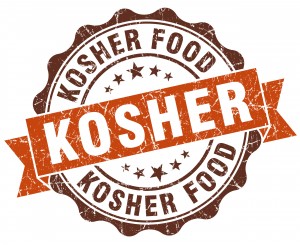Why are the biblical dietary laws still relevant today followers of Yeshua (Jesus)? As this video shows, it is primarily a godlines and holiness issue, and only secondarily a health issue. When giving his people the laws of clean and unclean meats, Elohim was wanting them to be holy as he is holy, and he still wants a holy people who live an unpolluted lifestyle today.
Tag Archives: Dietary Laws
The Heart & Spirit Behind the Biblical Dietary Law
The Genesis creation account records that YHVH Elohim made man in his own image (Gen. 1:26). As such, the first humans, Adam and Eve, had spiritual communion with their Creator. Though man fell quickly to the temptation to sin, which separated him from a sinless, set-apart and righteous Creator, YHVH has desired to redeem man from the power of sin to be set-apart (kadosh) as he is set-apart (e.g. Lev 11:44).
Israel was redeemed from YHVH’s judgment against sin when they sacrificed the lamb on Passover and painted the blood on the door posts of their homes. YHVH then immersed Israel in the Red Sea (a picture of baptism for the remission of sins) and led them to the foot of Mount Sinai. YHVH revealed his Torah-truth (his instructions, teachings and precepts in righteousness) to the nation of Israel from Mount Sinai so that they could become a set-apart (kadosh) kingdom of priests (Exod. 19:6). He was showing them the pathway of righteousness so that after having been redeemed by the blood of the lamb—a direct prophetic picture pointing to Yeshua the Lamb of YHVH slain from the foundation of the world—they could have fellowship with him by avoiding sinning by walking in the straight and narrow path of righteousness.
Part of the walking in a loving relationship with a righteous and totally set-apart (kadosh) YHVH involves keeping his commandments as Yeshua said in John 14:15. To know and to love YHVH is to obey his commandments (1 John 2:3-6). Those who love him and back up their belief in him with the actions of obedience (faith without works is dead, Jas. 2:14-26) are better off than the demons who believe in Elohim only, but do not back up their belief with obedience to YHVH’s righteous commands. Those who love and obey YHVH Continue reading
“Common and Unclean” Explained
Romans 14:14, Nothing is unclean in itself. In this verse, is the Apostle Paul declaring that there is no longer a distinction between clean and unclean foods, therefore making void the biblical dietary laws? Let’s analyze the contextual and linguistic aspects of this passage to see what Paul is really saying here.
The word unclean (koinos) in this verse can also mean “common,” and in three places in the Apostolic Scriptures the two words “common” and “unclean” are used side by side; q.v. Acts 10: 14, 28 and 11:8, which says, “But I said, Not so, Master: for nothing common [koinos] or unclean [akathartos] has at any time entered into my mouth. “From this example, we see that unclean in Romans 14 can also mean “common” as we find in Acts 11. The word for unclean in Acts 11:8 is an entirely different word; therefore, akathartos is a reference to unclean meat, as proscribed by the Torah. Koinos, on the other hand, cannot mean unclean meat in Romans 14, or else Acts 11:8 would be a superfluous and unexplainably redundant in using two words that mean exactly the same thing. The word koinos is used elsewhere in the Apostolic Scriptures not to mean “unclean,” as in “unclean meat,” but “unclean” as in unwashed hands (Mark 7:2), or “common,” as in something that is shared commonly among people (Acts 2:44; 4:32; Tit 1:4; Jude 3). Of the seven places this word is used in the Apostolic Scriptures it never means unclean meat.
In David Stern’s Jewish New Testament Commentary, on Romans 14 he states that Paul is not abrogating the biblical dietary laws. On verse 14, Stern states that Paul is referring to ritual purity, not whether something is unclean (nonkosher) meat or not. What is ritual purity? It is a reference to either how something was slaughtered, and whether it was bled properly, or whether the meat had previously been sacrificed to idols before being sold in the public meat markets—a common practice in that day in pagan cities.
Furthermore, Paul could not have been advocating eating swine, and other unclean meats, without making himself into a total hypocrite and liar, since in several places in the Book of Acts he strongly states (toward the end of his life) that he was a Torah-observant Jew and walked orderly and kept the Torah (Acts 21:20), and that he had not broken any of the Torah laws (Acts 25:16), which would have included the dietary laws contained in the Torah.
Let’s also keep an important point in mind when speaking of YHVH’s biblical dietary commands: When someone gets born again or regenerated spiritually their digestive system does not change. Eating unclean or biblically unkosher meat is, from a purely medical standpoint, deleterious to one’s health regardless of whether one is a believer in Yeshua or not.
Spiritually, are you a pig or a lamb?
Are you holy or profane? The Bible teaches that what we eat reflects who we are spiritually.
Leviticus 11:1–47, Let’s briefly discuss the subject of clean and unclean meats. There are many issues here that need to be explored. How serious are you about obedience? Is your belly your god? (See Phil 3:19; Rom 16:18.) Do your taste buds or the Word of YHVH rule your life? Remember, Torah covers all aspects of life: physical, spiritual, emotional, relational, civil, agricultural, political, jurisprudence, religious, and economic. Torah is a very holistic handbook on life. Are you one who takes the (humanistic) pick-and-choose approach to Torah-obedience? “I’ll obey only the biblical laws that suit me.” Such an approach is akin to what the serpent told Adam and Eve when he said, “You can have it your way … YHVH didn’t really mean what he said when it comes to obedience.”
The biblical kosher laws involve many areas such as health issues, holiness (not defiling the body, the temple of YHVH’s Set-Apart Spirit), and separation issues— how we’re to act, live, eat, worship, think, dress and talk differently than the heathens around us. The word kosher derives from the Hebrew word kasher (Strong’s H3787) meaning “to be straight, right, acceptable” (see Est 8:5; Eccl 11:6; 10:10). YHVH has called his people out of this world and sanctified (set-apart) them to be “straight, right and acceptable” to him. Therefore, YHVH hasn’t give us the liberty to act, speak, dress, eat and live the way the heathens do. He’s called us to a higher standard. We can’t expect to be called the children of the Most High, yet live like the children of the world. We must choose whom we are going to serve (see Josh 24:15): YHVH or mammon and this world (Matt 6:24).
Leviticus 11:4, 47, Unclean. The word unclean is the Hebrew word tameh meaning “defiled, impure, polluted ethically, ritually or religiously” and the word clean is the Hebrew Continue reading
Does Peter’s Vision Tell Us to Eat Pork?
Many Bible believers view Peter’s vision in Acts 10 as proof that it is now permissible for disciples of Yeshua to eat non-kosher food, like pork, which the Torah (law of Moses) forbids. Is this so? Here is a short answer to this question.
Acts 10:13–15, In Peter’s vision of the sheet covered with unclean animals the voice from heaven commanded him three times to kill and eat these unclean animals. Peter was confused by the meaning of this vision since being a Torah-law abiding Jew he knew that eating unclean meat was forbidden and in good conscience he could not do that which was contrary to YHVH’s Torah-law, for to do so was sin (sin is the violation of the law, 1 John 3:4).
Often visions are metaphorical in nature and not literal. There are many examples in the Scriptures of people receiving metaphorical visions. Just read the books of Daniel and Revelation, for example. Indeed, Peter’s vision was no exception, for no sooner had the vision ended when three Gentile men appeared at his door seeking the gospel and the Spirit of Elohim bade Peter to go and to meet them. Peter then realized that the interpretation of vision was that he should not call any man common or unclean; that is, the gospel message is for all whether Jew or those of the nations (verse 28). The Bible interprets itself in this passage and the issue is not about whether it is now permissible to eat non-kosher meat or not, but rather the Spirit of Elohim was now directing the apostles to begin taking the gospel to the Gentiles, who by Jewish standards were considered common and unclean (verse 28).
Now consider this. If Yeshua had meant to say in Matthew 15:11 and Mark 7:18–19 that it was now permissible to eat all foods including those meats that the Torah prohibits to be eaten (e.g., pork, shellfish, etc.), presumably Peter would have known this, since he was present when Yeshua made the statement (see Matt 15:15). If Peter knew that Yeshua had given the okay for his disciples now to eat unclean meat, why then did Peter so strongly object when the voice from heaven commanded him to eat the unclean animals in the vision (Acts 10:13–14)? Obviously, Peter had not changed his opinion about not eating unclean meat, since Yeshua had never annulled the Torah command forbidding the eating of unclean meats in the first place.





